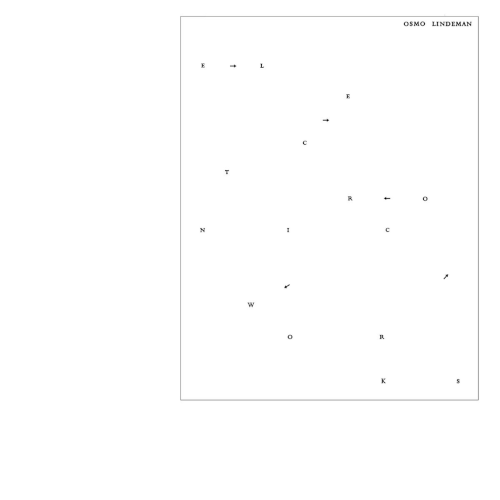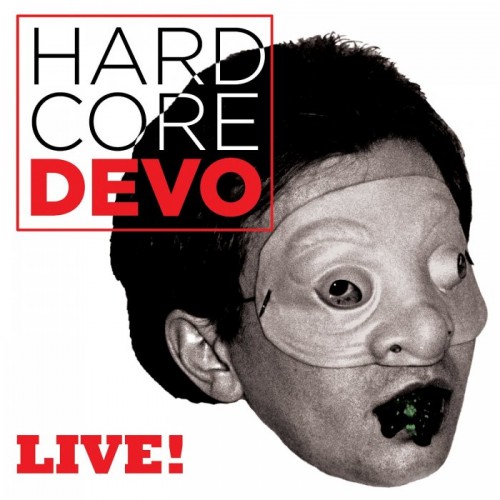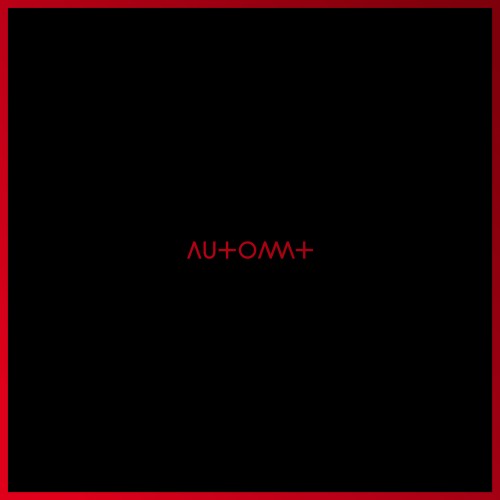…as I always say, anyone who looks at the Fall track-by-track, rather than the correct way, which is as one discrete body of work – is, no pun intended, a fool.
Tobi Blackman, Dictionary Pudding
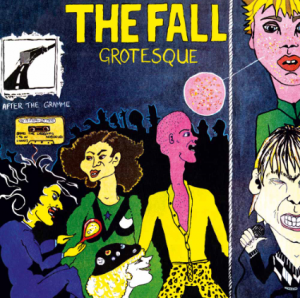 When I was doing my masters, there was a seminar several times a week where the phrase “what is at stake with [x]…” and they’d then go into their own personal corner of frog spawn distribution in mid-Wales. Except it wasn’t ever anything as exciting as frog spawn distribution in mid-Wales, but it was a lot of stuff about various corners of historical theology. The source material tends to be pretty fascinating, but the recursion on interpretations of apparently minute points in theological history can be pretty prohibitive unless you’re engaged in, like, pseudepigrapha or legalistic docetism (and are therefore a tenured, full-time academic).
When I was doing my masters, there was a seminar several times a week where the phrase “what is at stake with [x]…” and they’d then go into their own personal corner of frog spawn distribution in mid-Wales. Except it wasn’t ever anything as exciting as frog spawn distribution in mid-Wales, but it was a lot of stuff about various corners of historical theology. The source material tends to be pretty fascinating, but the recursion on interpretations of apparently minute points in theological history can be pretty prohibitive unless you’re engaged in, like, pseudepigrapha or legalistic docetism (and are therefore a tenured, full-time academic).
At this point, it’s probably worth offering a prolegomena: I’ll make no apologies for this being of minimal interest to the non-Fall fan; I make similar non-concessions to those who are kind of ambivalent about The Fall. “Being ambivalent”, in this case, applies to anyone who’s not enjoyed an album since the 1990s. But the core of these things, critical studies in certain subjects, tends to proceed from an axiom. So I’m going to use Tobi’s axiom above to address the Fall. And what, in 2017, is at stake with the Fall?
So for Tobi’s assertion above, we shall refer to it as axiom aleph; this is, fundamentally, the holistic principle of Fallism; it is also, therefore, fundamentalist. Its central tenet is that of non-separation, a partial analogue to the absolutist non-discrimination of Dzogchen Buddhism or Patristic Marcionite teachings. Appreciation of The Fall, therefore, lies in deliberate indistinction between beginning and end, a hitherto uninterrupted state of Fall-ness. Note the “between” there. This is necessarily temporal — I don’t wish to intimate that there’s any cosmic “all-time-existed-forever”-ness about this – but it does make out there’s a very clear opprobrium implied upon critical work that renders particularist or (groan) rockist work within Fallology as, at best, tempestuous if not outright apostatic.And just to dwell on accusations of apostasy for a moment — the implication of axiom aleph is that apostasy is easily identified. Analogies being such as they are, this is often the way with fundamentalist claims, regardless of whether their domain is soteriological (ie, an absolute metaphysical imperative) or non-obligatory tenets of a religion — Islam, by way of analogy, distinguishes fard (obligatory) from wajib (merely necessary). Herein, we can identify apostatic Fallisms as, for instance, referring to Brix-era as a “golden era” or talking about twenty- to thirty-year-old songs as their best: “The Fall — ‘Totally Wired’, yeah!” It’s perfectly reasonable that these people should enjoy whatever it is, but they’re not really Fall fans, is the point.
Adhering to axiom aleph is, in principle, simple. But there are substantial lacunae within the exposition of this. Most glaringly, Live At The Witch Trials has very many songs that are fundamentally a bit shit. The unwavering alephist Fallologist is welcome to have a Fallism which admits the appalling drum fills on Live At The Witch Trials, but its an incontinent approach. And if anything, what is broadly identified as “The Fall” is exceptionally continent.Kacey Musgraves, undoubtedly espousing neo-Aristotelian ethical principles of continence, identifies the following contrast within the social contract:
If you don’t go to church
you’ll go to hell
if you’re the first on one on the front row
you’re a self-righteous son of a…
Can’t win for losing
You’ll just disappoint ’em
just ’cause you can’t beat ’em
don’t mean you should join ’em.
So we here identify, by extension, the principle that there is a necessary middle ground to various actions. Fallism doesn’t imply an uncritical appreciation of things — otherwise you might just as well listen to something that is, a priori, shit. Like Bob Dylan or something. What is at stake at this point is that axiom aleph begins to look unstable.
So what I’m proposing here is that there’s an analogue to Trinitarianism, a hypostasis of the state of Fall-ness which occurs within not just a temporality, as was above insinuated to be implicit to axiom aleph, but within a punctuality and, critically, by way of partial accretion that culminates in Fall-ness. That is to say, it is demonstrably possible to identify a moment in history when Fall-ness was achieved by the band “The Fall”; moreover, it’s entirely possible to identify — within a partial axiom aleph — moments where the band “The Fall” were not necessarily exhibiting Fall-ness. I shall identify this axiom as axiom bet.This review isn’t going to get any less turgid if you’re still reading at this point. But it has actually arrived at the point where I start talking about records.
Totales Turns (1980) / Grotesque (After the Gramme) (1980).
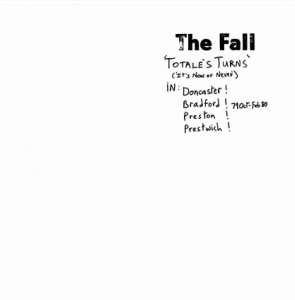 The convenient thing about being given a load of re-issues is that there’s not really much to talk about, so I’ve had the opportunity to expand upon the above ideas. These reviews don’t feature any out-takes or hidden tracks or (shudder) life takes or anything like that. They’re just straight up re-issues. It might be that they’ve been re-issued, but part of the thing is that they sound like they do. I can never discern what’s different about re-masters in most cases.
The convenient thing about being given a load of re-issues is that there’s not really much to talk about, so I’ve had the opportunity to expand upon the above ideas. These reviews don’t feature any out-takes or hidden tracks or (shudder) life takes or anything like that. They’re just straight up re-issues. It might be that they’ve been re-issued, but part of the thing is that they sound like they do. I can never discern what’s different about re-masters in most cases.
The point I’m drilling home here is that there’s a period during which The Fall exist but aren’t entirely Fall. But what is “Fall-ness”? Part of my objection to Live At The Witch Trials is that there’s fills everywhere. Listening to Totales and Grotesque, there’s a few other things. Such as harmonising on guitars.
There’s two guitar parts on “Fiery Jack” and one of them’s extemporising on harmonics. It’s still a dirge, but it’s not The Fall. “In My Area” is, fundamentally, pish. There’s a fucking pun in the title of “No Xmas For John Quays”. Whatever The Fall are — and they are large and complex and often throw in curveballs — they are not a band of puns. Totales isn’t an appalling album, but it’s not a necessary one either; of historic interest because there’s some actual Fall songs in there. The most Fall-Fall song on there is “New Puritan” — it’s very clearly a demo recording, and has lots of messy parts, and a mix of multiple textures, and MES‘s stanzas are super-stretchy.That it is a demo is telling — the point at which the group was a band of (yawn) individuals each wanting their own (yawn) parts on each (yawn) song, and the only subterfuge of discipline and control under which Smith could operate was in demo quality. By contrast, “Choc-Stock” is jaunty, funny, and it’s the sound of a band where everyone feels the need to do something all the time. Sloppy. No discipline, nothing like the concentrated messes of orthodox Fall. And by concentrated messes I mean that “Choc-Stock” is just floppy and a bit guitar band, while by the time we get to “Early Life Of Crying Marshall” on The Marshall Suite, the messes are inscrutable, compelling, baffling, entirely expansive in use of multiple textures and very etc.
Grotesque performs better — there’s a number of “this is definitely The Fall” tunes (“NWRA”, “Impression Of J Temperance”, “WMC – Blob 59”) but there’s a difficulty where, say, “English Scheme” lacks the confidence and still has instrument parts that are sloppy and superfluous. “In The Park” is antagonisingly new-wave-y. “C’n’C-S Mithering” probably contains the germ of orthodox Fall — lots of mixed timbres, takes from different mics, inscrutable extra noise from dictaphones, extended intro, lyrics over several mics, cross fidelities, instrumental parts only if necessary…So the metaphysic here is that it’s entirely possible and necessary to say that some “early” Fall doesn’t need to be included in the bet axiom of continual non-discrimination of The Fall. Ergo, the aleph axiom is crucially failing insofar as it admits of no critical understanding of The Fall and inherently has a concomitant slavish and floppy understanding of The Fall. In order for a rigorous understanding to arise, we need to admit that some early Fall is not a) good or b) quintessentially The Fall; this in turn expands apostatic accusations but gives them a remit beyond wild prejudice.
Part of the reason I’ve felt it necessary to go through this whole assiduous subterfuge is that, while trying to write notes for this review, nearly every song after Grotesque and Totales Turns lead my notes to say a variation on the phrase “this is literally incredibly good”.A Part Of America Therein (1981)
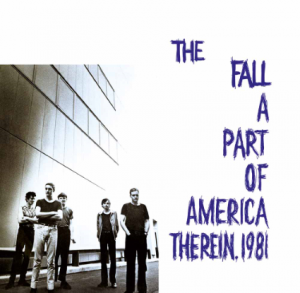 This is literally incredibly good. At this point, we’re almost into the realm of pure Fallism. A state which is defined by everything being unequivocally good. However, there’s a paradox.
This is literally incredibly good. At this point, we’re almost into the realm of pure Fallism. A state which is defined by everything being unequivocally good. However, there’s a paradox.
Anyone familiar with doxology will be familiar with that idea. The problem is that when The Fall do something un-Fall like, they do it in contrast to whatever the assumption of The Fall is; in 1981, there isn’t quite enough distance between the state of sheer Fall-ness and the more “band”-like stuff –drum fills and shit backing vocals — in order that the contrast can be reified. So the “Stars on 45” bit of “Cash n’ Carry” is a moment of sloughing off vestigial band/ faff Fall. It’s a bit crap. To put that into context — when, on 2011’s Ersatz GB we get the Eleni-vocalled cover of “Happi Song”, it’s done in a spirit of gestalt-Fall-ness, constituted by itself, despite the alleged incongruity.
A Part Of America Therein is, however, a live album. And for personal reasons (my own sanity/ glut) I tend to avoid live albums. So we’ll just say that it’s incredibly, spectacularly brilliant, but if you want to take an approach to The Fall which only includes quasi-Nicene, canonical LPs, you might want to avoid this. That schism should probably be explored elsewhere. Feel free to pop me a line if you’re really keen to get my perspectives on that.Perverted By Language (1983)
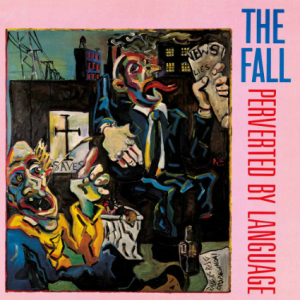 For our collection here, this is our first definitely bet axiom canonical orthodox Fall album. It’s literally incredibly very good. “Garden” possibly encapsulates a thing about the Fall, except so does “Smile” and “Strife Knot” and “Tempo House” and… well, “Hotel Bloedel” might be the first non-Smith vocal (at least the first that’s worth bothering with).
For our collection here, this is our first definitely bet axiom canonical orthodox Fall album. It’s literally incredibly very good. “Garden” possibly encapsulates a thing about the Fall, except so does “Smile” and “Strife Knot” and “Tempo House” and… well, “Hotel Bloedel” might be the first non-Smith vocal (at least the first that’s worth bothering with).
Temporarily putting on the reasonable-descriptions hat, there’s a lot on here that’s about Smith’s astonishing ear for detail — there’s the sense that every track has just marginally different recording values — the variety of timbres on vocals is pretty enormous, but it may be the case that there’s a lot of recording detail gone in elsewhere; certainly there’s a lot of murk here, but the breadth of that murk is astonishing, still, twenty-four years later.
Oh, a thing I didn’t mention — everything on Perverted By Language starts being oblique bordering on opaque, but lyrically never obtuse or ostreperous; one of the presumed core tenets of bet axiom canonical orthodox Fallism is that scrutability is false discrimination, a non-desirous quality that interferes with the appreciation of Fall-ness. By contrast, earlier Fall retains too much of linear narrativism (cf Bingo Master’s Break Out) which offers too much to the listener and should be derided as false Fallism.The Marshall Suite (1999)
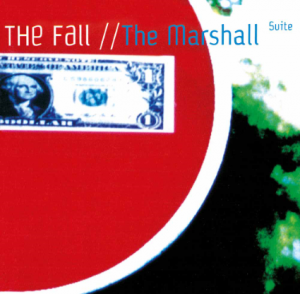 This is such a strange set of re-issues. I have no idea what holds them all together, or rather, I can see that the previous ones cover the same-ish set of years. This moves on sixteen years. It is, perhaps obviously, fucking amazing.
This is such a strange set of re-issues. I have no idea what holds them all together, or rather, I can see that the previous ones cover the same-ish set of years. This moves on sixteen years. It is, perhaps obviously, fucking amazing.
At this point there’s an established tropology for The Fall. Partial cover of a garage (or similar) song — check (“F-‘oldin’ Money”). Legitimate otherworld dancefloor killer — check (“Touch Sensitive”). This doesn’t really abide by any proper musical rules I’m familiar with — check “(Jung Nev’s) Antidotes”. “Oh, I didn’t expect the Fall to do that” — check (“The Crying Marshal”, in which Smith goes through a vocoder over some sort of DnB/ Big Beat fuckup).
Secondarily, this includes one of the rarest tropes of Fall songs — the genuinely tender, touching and gor blimey actually pretty (“Birthday Song”). But of course that’s metered by the proper garage spiteful mess song (“The Perfect Day”, a cover of The Saints). If you’re familiar with the Peel Sessions from this album, it’s worth contrasting with the versions here — between the three variations on “Antidotes” (which re-appears here as “Anecdotes”).And that’s a sight of the absurdly demands Smith puts on the bands. I don’t want to get into journalistic cliché here, but there’s three versions of quite a complex piece; for all the garage bangers the band are probably memorising twenty songs every couple of months, a work rate that’s not slowed down in the interceding eighteen years or the preceding twenty-odd. I’d hope that the sense of bafflement felt by listeners is matched by at least most of the bands that’ve held the chalice.
So there we are. I hope you have enjoyed reading my epexegesis on non-autocthonous bet axiom canonical Fallist orthodoxy. The Fall are literally very, very good.
-Kev Nickells-
